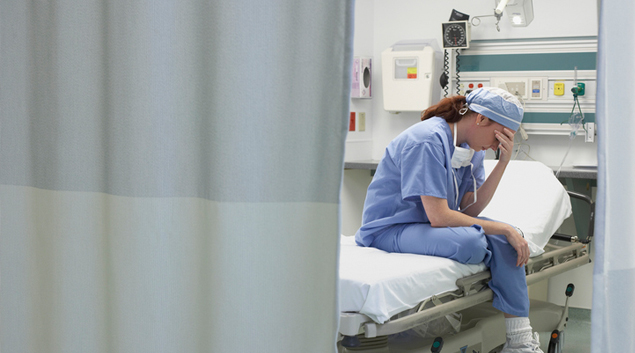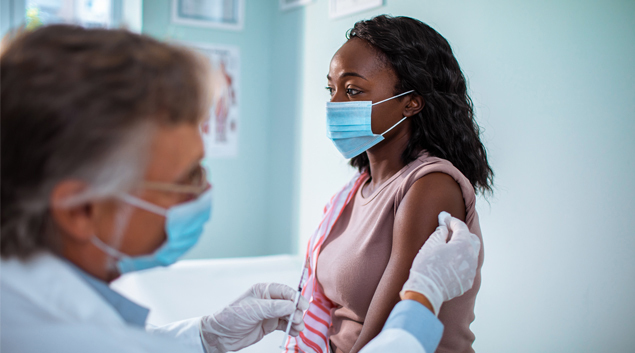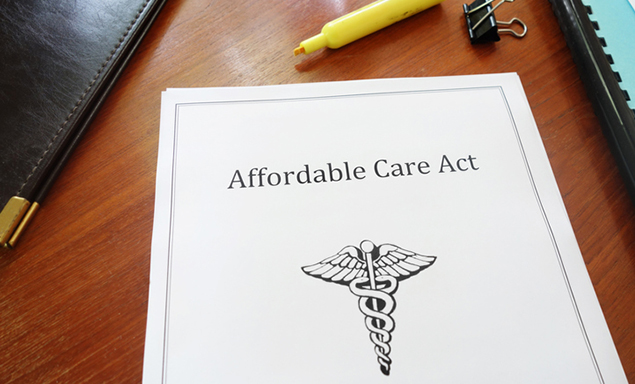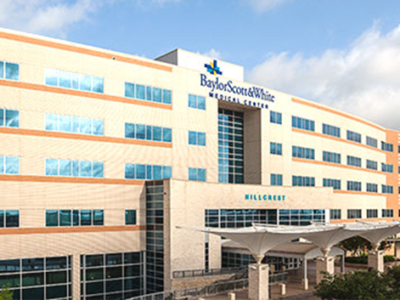
Healthcare workers on the front lines of the COVID-19 pandemic risk exposure to the coronavirus daily, and this poses obvious risks to their physical health. But the public health crisis is taking a toll on their mental health as well, contributing to anxiety, stress, depression, loneliness and other concerns, as outlined in a pair of new surveys.
While many throughout the U.S. are coping with the fear and uncertainty of COVID-19 from their homes, essential workers, including healthcare workers, must expose themselves to the virus every day. Healthcare workers are also experiencing conditions that have been compared to a war zone, continuously witnessing the direct effects of the pandemic as it spreads throughout communities.
WHAT’S THE IMPACT
HIMSS20 Digital
Learn on-demand, earn credit, find products and solutions. Get Started >>
Hospitals have been overwhelmed and short-staffed as the coronavirus has reached new peaks in many areas of the country, straining resources and stretching the workforce thin. A survey from Mental Health America sought to quantify the effect this is having on the industry’s workforce. From June to September, MHA hosted the survey on mhascreening.org to listen to the experiences of healthcare workers during COVID-19 and to create better resources to help support their mental health as they continue to provide care.
The responses collected from the 1,119 healthcare workers surveyed indicated they’re stressed out and stretched too thin: 93% were experiencing stress, 86% reported experiencing anxiety, 77% reported frustration, 76% reported exhaustion and burnout, and 75% said they were overwhelmed.
They’re also worried about exposing their loved ones. More than three quarters of healthcare workers with children said they were worried about exposing their child to COVID-19, nearly half were worried about exposing their spouse or partner, and 47% were worried that they would expose their older adult family members.
Among people with children, half reported they are lacking quality time or are unable to support their children or be a present parent.
Emotional exhaustion was the most common answer for changes in how healthcare workers were feeling over the previous three months (82%), followed by trouble with sleep (70%), physical exhaustion (68%) and work-related dread (63%). Over half selected changes in appetite (57%), physical symptoms like headache or stomach ache (56%), questioning career path (55%), compassion fatigue (52%) and heightened awareness or attention to being exposed (52%). Nurses reported having a higher exposure to the coronavirus (41%) and they were more likely to feel too tired (67%) compared to other healthcare workers (63%).
About 39% said they didn’t feel like they had adequate emotional support. Nurses were even less likely to have emotional support (45%).
When asked to select their top three work-related stressors, 61% reported uncertainty about when things will settle down or return to normal, and 54% reported experiencing burnout. Nearly half (49%) also reported that their heavy or increased workload was a major stressor in the previous three months.
WHAT ELSE YOU SHOULD KNOW
A second survey conducted by Berxi, a division of Berkshire Hathaway Specialty Insurance and a provider of professional liability insurance for medical professionals, came to similar conclusions about the levels of stress and burnout reported by healthcare workers. Berxi recently completed the survey to learn more about their mental and physical well-being compared to this time last year, and the results were troubling.
A startling 84% reported feeling at least mildly burned out from work, and 18% feel totally burned out. The top 5 stressors that respondents identified, in order, were fear of getting COVID-19; long hours/shifts; the general state of the world; fear of spreading the coronavirus; and family issues and responsibilities.
Alarmingly, 90% said they’ve been getting less than the recommended eight hours of sleep each night, and one in three admitted to getting four hours or less. Work performance is suffering as a result: One in three healthcare workers feel that they’ve been making more mistakes at work.
Nearly half (48%) have considered either retiring, quitting their jobs, or changing their careers altogether, while the same number say that their mental health has deteriorated.
Of all healthcare professionals surveyed, 49% have cried at work in the past year — and 67% of all nurse practitioners admitted to doing the same.
THE LARGER TREND
The burnout issue was predicted in March by Dr. James Adams of Northwestern University’s Feinberg School of Medicine, and Dr. Ron Walls of Harvard Medical School, who wrote that the combination of stress and possible exposure puts healthcare professionals, from physicians, to nurses, to specialists, at greater risk of contracting COVID-19 and potentially spreading it to others.















